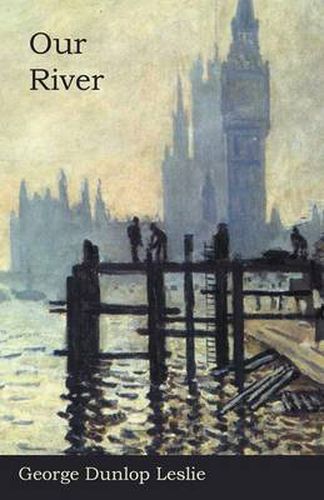Readings Newsletter
Become a Readings Member to make your shopping experience even easier.
Sign in or sign up for free!
You’re not far away from qualifying for FREE standard shipping within Australia
You’ve qualified for FREE standard shipping within Australia
The cart is loading…






This title is printed to order. This book may have been self-published. If so, we cannot guarantee the quality of the content. In the main most books will have gone through the editing process however some may not. We therefore suggest that you be aware of this before ordering this book. If in doubt check either the author or publisher’s details as we are unable to accept any returns unless they are faulty. Please contact us if you have any questions.
Originally published in 1881, this work details what life was like on the Upper Thames before the 20th century. The following passage is an extract from its preface: ‘In the description of our river I have confined myself to those parts of it with which I am best acquainted: to the banks, villages, locks, flowers, and animals, which have been my especial delight I have purposely left unmentioned many important places, noblemen’s seats, and other well-known objects of interest; these having been ably and fully described in the numerous books on the subject already published. In my desire to make more widely known the peculiar advantages belonging to my favourite boat, I may seem at times, to the generality of my readers, a little troublesome, but shall be quite satisfied if what I have written on this head should prove useful to those who may now, or at any future time, appreciate the charms of the punt pole.’ The River Thames takes its name from the Middle English Temese, which is derived from the Celtic name for river. Originating at the Thames Head in Gloucestershire, it is the longest river in England, flowing a total length of 236 miles, out through the Thames Estuary and in to the North Sea. On its journey to open water it passes through the country’s capital, London, where it is deep enough to be navigable for ships, thus allowing the city to become a major international trade port.
$9.00 standard shipping within Australia
FREE standard shipping within Australia for orders over $100.00
Express & International shipping calculated at checkout
This title is printed to order. This book may have been self-published. If so, we cannot guarantee the quality of the content. In the main most books will have gone through the editing process however some may not. We therefore suggest that you be aware of this before ordering this book. If in doubt check either the author or publisher’s details as we are unable to accept any returns unless they are faulty. Please contact us if you have any questions.
Originally published in 1881, this work details what life was like on the Upper Thames before the 20th century. The following passage is an extract from its preface: ‘In the description of our river I have confined myself to those parts of it with which I am best acquainted: to the banks, villages, locks, flowers, and animals, which have been my especial delight I have purposely left unmentioned many important places, noblemen’s seats, and other well-known objects of interest; these having been ably and fully described in the numerous books on the subject already published. In my desire to make more widely known the peculiar advantages belonging to my favourite boat, I may seem at times, to the generality of my readers, a little troublesome, but shall be quite satisfied if what I have written on this head should prove useful to those who may now, or at any future time, appreciate the charms of the punt pole.’ The River Thames takes its name from the Middle English Temese, which is derived from the Celtic name for river. Originating at the Thames Head in Gloucestershire, it is the longest river in England, flowing a total length of 236 miles, out through the Thames Estuary and in to the North Sea. On its journey to open water it passes through the country’s capital, London, where it is deep enough to be navigable for ships, thus allowing the city to become a major international trade port.